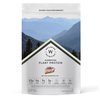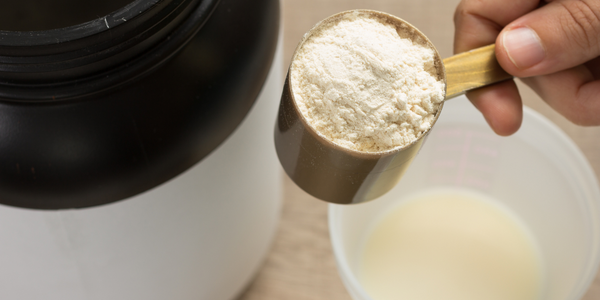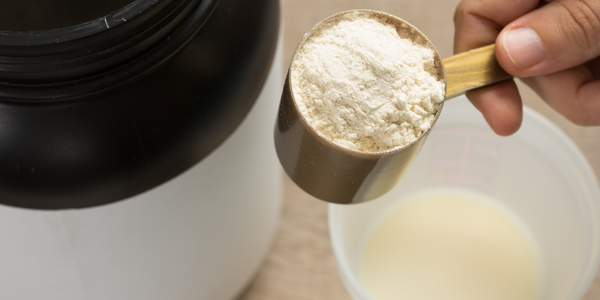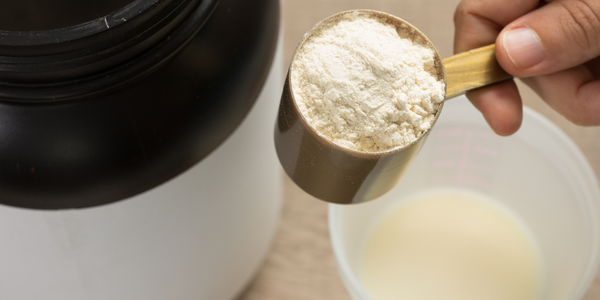In the world of sports, where physical prowess and peak performance are essential, players are always looking for methods to improve their diet and training regimen. There has been a rise in the number of athletes turning to plant-based diets to fuel their training and excel in their respective sports. This shift towards plant-based eating has prompted a surge of interest in sports nutrition for athletes who follow vegan and vegetarian lifestyles. These individuals have shattered the misconception that vegan and vegetarian diets cannot support high-level athletic performance.
Plant-Based Nutrition for Sports
Gone are the days when eating a lot of protein and carbs was the only approach to sports nutrition. A lot has changed. More than ever, athletes are conscious of the need for a balanced diet that meets their individual demands.
Whether you're a bodybuilder, an athlete, or engaged in advanced training, nutrition is the fuel you need to execute any activity. One's strength, performance, and recovery are all impacted by what one eats or drinks. Animal-based diets have long been regarded as the gold standard for sports nutrition, but plant-based athletes are demonstrating that vegan and vegetarian diets may be just as successful as, if not more so than, animal-based diets.
Plant-based Proteins for Sports
Protein is necessary for muscle growth and post-workout recovery, as well as for preventing muscular breakdown (loss). Regular exercise helps build muscle mass when combined with a suitable protein diet.
Even though diets based on animals may be excellent sources of protein, they have been linked to adverse health effects. Diets based on plants have a lower calorie, saturated fat, and cholesterol content. When the correct proportions of various nutrients are present in a range of sources and are balanced at the right levels, you should be able to obtain enough of them from them, including calcium, proteins, and vitamin B12. Recent studies have demonstrated that a combination of a few plant-based proteins can deliver a full amino acid profile that is equivalent to sources of animal protein. Plant-based proteins are rich in antioxidants compared to animal proteins, which may help combat inflammation in the body and thereby speed up the recovery process.
Let's take a closer look at some of the plant-based protein sources that athletes can incorporate into their diets:
-
Legumes:
Lentils, chickpeas, black beans, and other legumes are excellent sources of plant-based protein. They are also rich in fiber, which can aid in digestion and provide lasting energy. -
Tofu and Tempeh:
Soy-based products like tofu and tempeh are protein powerhouses. They are versatile ingredients that can be used in a wide range of dishes, from stir-fries to smoothies. -
Nuts and Seeds:
Almonds, peanuts, chia seeds, and hemp seeds are high in protein and healthy fats, making them ideal for athletes looking to maintain energy levels throughout their workouts. -
Plant Protein Powder:
For added convenience, plant protein powders are available in various flavors and formulations. These supplements are an easy way to increase protein intake, especially for athletes with busy training schedules.
Benefits of Vegan/Vegetarian diet in Sports
Numerous studies have highlighted the benefits of plant-based diets for athletes. Here are some of the key findings:
-
Improved Recovery:
Studies have found that athletes following plant-based diets experienced reduced muscle soreness and inflammation, leading to faster recovery times. -
Enhanced Endurance:
Research suggests that plant-based diets can improve endurance performance by increasing the body's glycogen stores and improving oxygen efficiency. -
Reduced Inflammation:
Chronic inflammation can hinder athletic performance and increase the risk of injury. Plant-based diets are known for their anti-inflammatory properties, which can help athletes recover faster and stay in peak condition. -
Heart Health:
Plant-based diets have been associated with improved cardiovascular health, reducing the risk of heart disease - a critical consideration for athletes aiming for long-term success in their respective sports.
Plant-Based Sports Supplements for Athletes
While a well-balanced plant-based diet can provide most of the necessary nutrients for athletes, some may choose to complement their nutrition with sports supplements. These supplements, specifically designed for sports nutrition, can help plant-based athletes meet their nutritional needs more efficiently.
-
Sports Nutrition Supplements:
These supplements often include essential vitamins, minerals, daily fiber and electrolytes that are crucial for athletes. They can help maintain energy levels, support recovery, and prevent nutrient deficiencies. -
Plant Protein Powder:
Plant or Vegan protein powders are a convenient way for athletes to increase their protein intake. They come in various flavors and can be easily added to shakes, smoothies, or even used in baking. -
Vegan BCAAs:
Branched-chain amino acids (BCAAs) are essential for muscle recovery and growth. Vegan BCAA supplements provide plant-based alternatives to traditional animal-based options. -
Plant-Based Omega-3s:
Omega-3 fatty acids are essential for joint health and inflammation control. Plant-based omega-3 supplements derived from algae oil are suitable for vegan athletes.
Wrapping Up
Athletes no longer need to rely on animal-based diets to excel in sports. With more and more athletes adopting a plant-based diet, they are setting an example for others to follow. With an emphasis on whole foods, plant protein sources, and carefully selected sports supplements like plant protein powder and vegan BCAAs, athletes can excel in sports by harnessing the power of plant-based nutrition for sports.
References
https://worldathletics.org/athletics-better-world/news/athletes-vegan-plant-based-sustainability
https://www.sciencedirect.com/science/article/pii/S0195666323001381
https://www.pcrm.org/news/health-nutrition/plant-based-protein-decreases-chronic-inflammation




























 DOWNLOAD NOW
DOWNLOAD NOW
